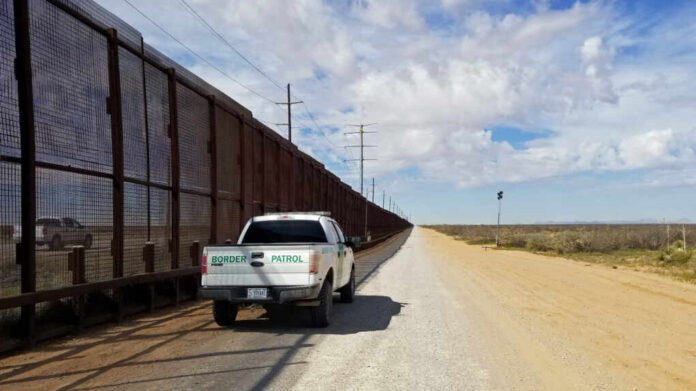
In the latest installment of the legal battle between the Biden administration and the state of Texas, the nation’s highest federal court has permitted a bill allowing law enforcement to arrest illegal immigrants to take effect.
On March 19, Senate Bill 4 was upheld by the U.S. Supreme Court. The legislation gives explicit permission to Texas law enforcement agencies to arrest and imprison migrants who illegally enter the country through the southern border, making illegal border crossings a criminal act.
It comes as immigration remains a top issue ahead of the 2024 presidential election, which looks to be a rematch between open-border advocate President Joe Biden and closed-border champion former president Donald Trump.
However, hours after the court voted in favor of allowing the bill to be temporarily enforced, the federal Fifth Circuit Court of Appeals issued a late ruling, 2-1, that once more blocked the law from taking effect.
The Supreme Court’s lifted stay began with a ruling from the appeals court last month, with the lower court imposing an additional stay after the first was lifted. Oral arguments about the case are set to be heard on Wednesday March 20.
UPDATE: Appellate court blocks Texas law criminalizing illegal border crossings hours after Supreme Court allowed it to take effect
The flip flop continues on SB 4https://t.co/3dW11EzPLU https://t.co/8EiaGAks9M
— Charlie Kirk (@charliekirk11) March 20, 2024
The bill, which has the support of Gov. Greg Abbott (R-TX) and Attorney General Ken Paxton (R-TX), makes crossing into the United States at any point that is not a designated border entry station a misdemeanor. Local police are also able to arrest individuals who are suspected of having committed this offense. Under the bill, judges have the authority to deport illegal immigrants.
Although the Supreme Court has ruled that the law can take effect, the original lawsuit brought against the Lone Star State continues in the Fifth Circuit appellate court. This initial challenge argues that Senate Bill 4 is unconstitutional and undermines the authority of the federal government when dealing with immigration issues.
The decision from the nation’s highest court came one day after conservative Justice Samuel Alito extended his March 4 stay on the law, intending to give the Supreme Court more time to consider the bill. This followed an order from the Fifth Circuit that would have implemented the law on March 10, until the Supreme Court issued the stay.
The law was initially thwarted from being enacted due to a lawsuit filed by the Biden administration.




























